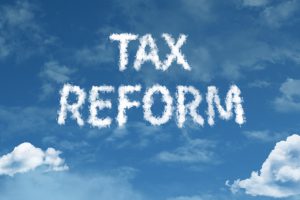Now that Trump has been elected, it’s time to look forward to see what potential implications this has from a wealth and tax planning perspective. Of course, this is all dependent on the direction things go in January when he takes office, but there’s agreement across a typically-divided Washington that the tax code needs major reform. With the support from both sides of the aisle and a Republican Congress, there’s a good chance that bipartisan tax legislation will be on the agenda in the first 100 days of a Trump presidency. 
The main gist of the tax plan is to reform the code by dropping income tax rates for businesses and individuals and raising the standard deductions. Personal exemptions would be repealed and itemized deductions limited. Furthermore, Trump has shared his desire to repeal the federal estate tax. However, the least is known about how a repealed estate tax would actually get through.
It’s not just individual income taxes that are going to take a hit, either. The corporate tax rate may be dropped from 35 percent to 15 percent. The majority of corporate tax expenditures will be eliminated except for research and development credits, and Trump also supports a one-time 10 percent tax for those who keep corporate profits offshore.
No matter what the changes end up being, it’s clear that the winds of change are blowing. Everyone, whether it’s an individual planning ahead for their estate or a business owner concerned about long-term tax planning and asset protection, should be prepared for considering new strategies in the near future. Partnering with a law firm where the attorneys have extensive experience interpreting these complex issues and translating them into strategies for individuals will be more important now than ever.
